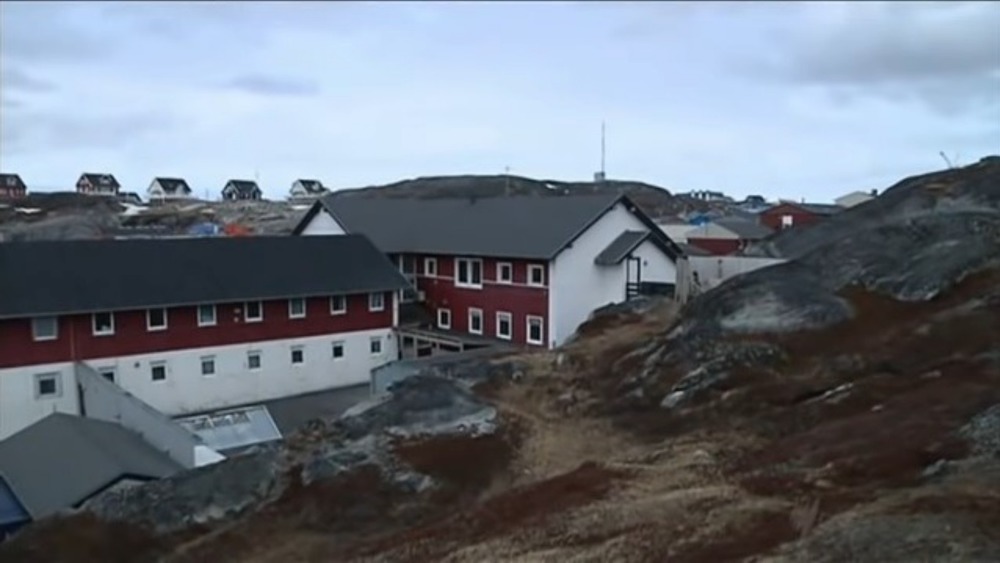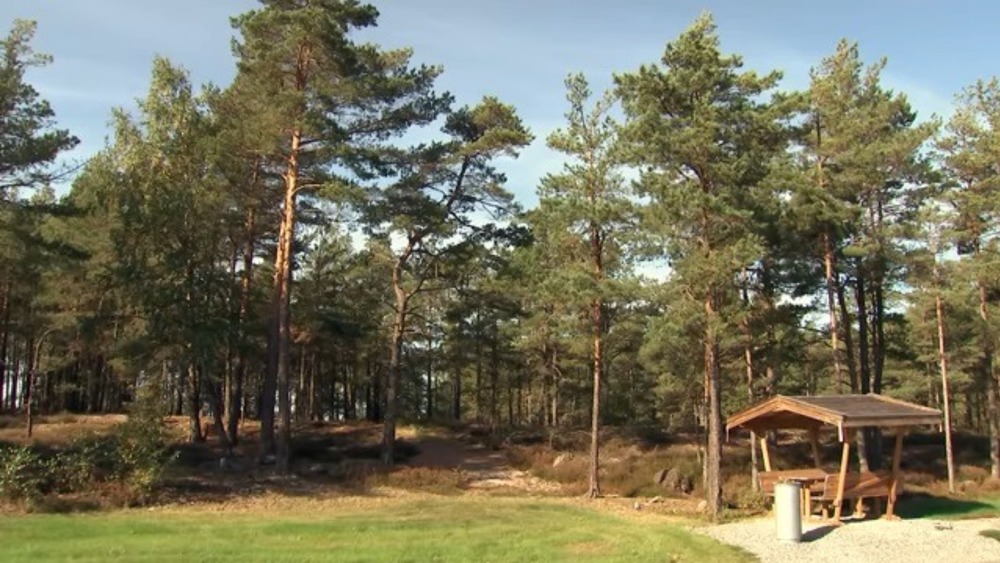Inside The World's Toughest Prisons: The Truth About Greenland's Nuuk Prison
Despite its inclusion on Netflix's Inside The World's Toughest Prisons, Ny Anstalt, the "open prison" in the capital city of Nuuk, Greenland, has been called "the world's most humane prison" by Great Britain's Channel 4 News (posted on YouTube). Until its construction, Greenland had just six prisons, none of which were equipped to accommodate high security prisoners, per CNN. People who had to serve high security prison terms had to endure what the architectural company FRISS & MOLTKE called "'a double sentence' — both the actual prison sentence, and ... being sent far away from their home country, family, and culture to prisons in Denmark."
Greenland is a former Danish colony and its population is just 56,000 people, making it the least densely populated country in the world. They run an "open prison" system, allowing inmates to work, study, and even hunt during the day before returning to the penitentiary at night, which they deemed unfeasible for high-security inmates. Compared to other Nordic countries, Greenland has a proportion of citizens sentenced to prison terms that is three times higher than the rest of the region. This can be traced to post-World War II "reforms" — the "dismantling of a traditional hunting and fishing society provoked social problems," reported CNN. About 88 percent of Greenland's residents are indigenous Inuit people. CNN interviewed Naaja Nathanielsen, director of the Greenland Prison and Probation Service, who noted, "Greenlandic people suffer from similar difficulties to other indigenous groups who have experienced colonization."
Do humane prisons have better outcomes?
After a competition run by Denmark's Prison and Probation Service, which administers Greenland's prison system, FRIIS & MOLTKE and Denmark's Schmidt Hammer Lassen architectural firms won the contract to build the structure. Project manager Jette Birkeskov Mogensen told CNN: "Learning about the prisoners and thinking about what conditions brought them to this situation has affected me deeply." The architectural team designed the prison to operate similarly to a "small village" with "residential blocks, workplaces, education and sports facilities, a library, a health center and a church."
They didn't put bars on the windows of the cells, and designed them to face a tall mountain, Sermitsiaq, making sure sweeping natural views were available to allow inmates the opportunity to "escape in [their] mind[s]." Local artists were brought in to decorate common areas. Guards don't carry weapons, which allows them to develop better relationships with the prisoners.
The very idea of building a prison with humanity and rehabilitation at the forefront of its structure is shocking to those who are used to the more punitive ideology of the American and British prison systems. It seems to be effective, however. Professor of Criminology Yvonne Jewkes told CNN, "A number of studies indicate that reoffending rates are relatively low in Scandinavian countries — often less than 30 percent." In the United States, a study by the U.S. Bureau of Justice put the number at 76.6 percent, while the United Kingdom found that 44 percent of released prisoners were reconvicted within a year.

